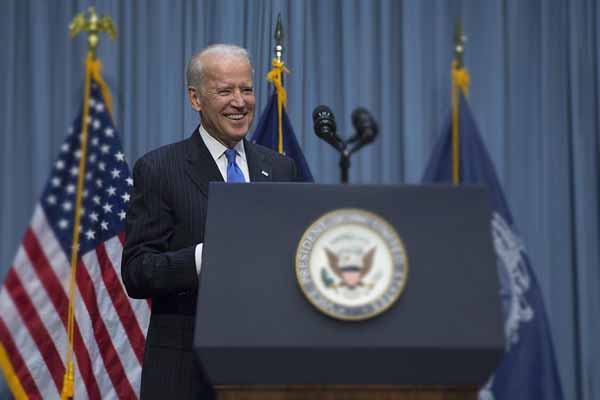
Directly and indirectly, the Biden administration’s wide-ranging Executive Order on Promoting Competition in the American Economy features myriad implications for health care and physician practices.
The executive order, issued earlier this month, takes aim at hospital and insurance market consolidation, noncompete agreements, lack of competition among drug manufacturers, and exorbitant costs of prescription drugs and hearing aids.
Among all that lies plenty of fodder for organized medicine, including the Texas Medical Association, to weigh in as needed on the administration’s plans once relevant rulemaking is released. That’s where the order’s broad strokes will truly come into specific focus, says Robert Bennett, TMA’s vice president of medical economics.
“An executive order signals what the administration is going to do. But proposed rules will come out, [and] we’ll have 30 or 60 days, depending on the regulation, to comment on this,” he said. “And that’s where the rubber hits the road.”
Here’s a look at some of the health care-relevant pieces of the order that will be on TMA’s radar as rulemaking develops.
Noncompete agreements
The executive order and its accompanying fact sheet target noncompete agreements not only in the health care sector, but also in general. The order encourages the Federal Trade Commission (FTC) to use rulemaking “to curtail the unfair use of noncompete clauses and other clauses or agreements that may unfairly limit worker mobility.” Slightly more pointedly, the fact sheet says the order is an encouragement for FTC to “ban or limit noncompete agreements,” noting recent data that show about half of U.S. businesses ask at least some workers to sign noncompetes.
As it waits to see how FTC will respond to that direction, TMA itself already is studying noncompete agreements in physician employment contracts. A resolution passed at TexMed 2021 mandated such a study, calling on TMA to evaluate the impact of noncompete agreements on Texas physicians and patients. The resolution also calls for TMA to assess “whether means other than noncompete agreements might suffice to protect physician employers’ legitimate interests.” TMA must report those findings back to the House of Delegates by TexMed 2022.
Hospital and insurance consolidation
Noting that hospital consolidation has taken its toll on many areas, especially rural communities, the fact sheet for the executive order says it “encourages the Justice Department and FTC to review and revise their merger guidelines to ensure patients are not harmed by such mergers.” The order directs the U.S. Department of Health and Human Services (HHS) to support “existing price transparency initiatives for hospitals, other providers, and insurers along with any new price transparency initiatives or changes made necessary” by recent federal legislation to curb surprise billing. (Some rulemaking related to the surprise-billing law has already been released, and TMA is preparing to comment.)
With regard to mergers in general, the order encourages the Justice Department and FTC to “enforce antitrust laws vigorously and recognizes that the law allows them to challenge prior bad mergers that past administrations did not previously challenge,” according to the fact sheet.
HHS also received a directive to “implement standardized options in the national Health Insurance Marketplace and any other appropriate mechanisms to improve competition and consumer choice.” The fact sheet says consolidation in the health insurance industry means “many consumers have little choice when it comes to selecting insurers. And even when there is some choice, comparison shopping is hard because plans offered on the exchanges are complicated – with different services covered or different deductibles.”
Costs of prescription drugs, hearing aids
The fact sheet for the order notes prescription medication prices continue “to far surpass” inflation, pegging a lack of competition among drug manufacturers as the reason. It also blames “pay-for-delay” agreements – where brand-name drugmakers pay generic-drug manufacturers to stay out of the market – for raising drug prices by $3.5 billion per year.
The order:
- Directs the Food and Drug Administration to work with both states and Native American tribes under existing law to safely import prescription drugs. Although the executive order doesn’t mention Canada, the fact sheet specifically points to that nation as the would-be source of those imported drugs.
- Directs HHS to continue promoting generic and biosimilar drugs, and to issue a comprehensive plan within 45 days to combat high prescription prices and price-gouging.
- Encourages FTC to ban pay-for-delay and similar agreements.
Hearing aids also represent an ongoing cost problem, the administration says, costing more than $5,000 per pair on average. Just 14% of Americans with hearing loss use hearing aids. The order asks HHS to consider issuing a proposed rule on over-the-counter hearing aids within 120 days.